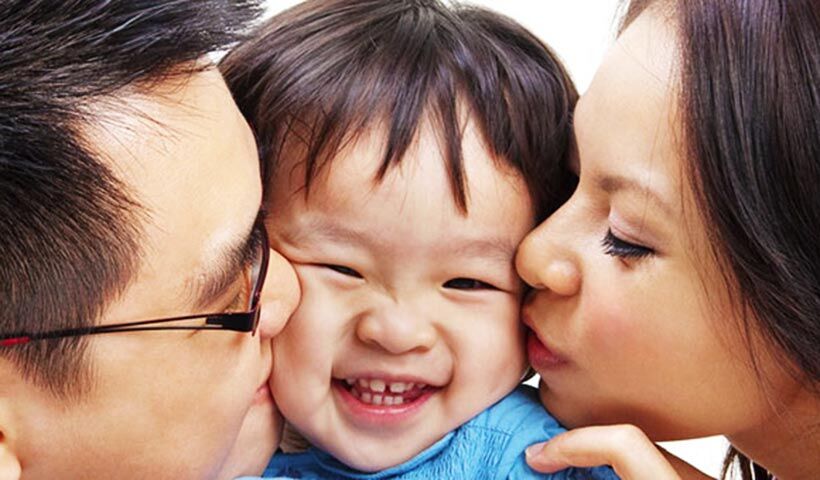Costs of Adoption
Agencies quote widely varying costs for Thai adoptions, mostly in the $10,000 to $18,000 range, excluding travel costs and US federal fees for visa processing and fingerprinting. Depending on the gifts you buy, the length of your stay, and any orphanage contribution you make, you could certainly spend more than $18,000. This also depends on how much your agency collects for its ongoing child-welfare programs (if any), in addition to Thai adoption processing fees. The amount of ground support offered by the agency once you are in Thailand can also have an impact on agency fees.
There is no set “required donation” to the Thai welfare institution or NGO that cared for your child. Most families do, however, make a voluntary donation. Consult your agency for advice. Many agencies offer subsidies or fee waivers for adoptions involving waiting children. Be sure to inquire.
Applying for Adoption
The vast majority of U.S. families who adopt from Thailand do so with the help of one or more adoption agencies. If no local agency handles Thai adoption, the local agency can prepare a home study and a “placing” agency that does Thai adoption and handles the placement portion.
See also Siam Legal’s Thai Child Adoption page here.
Independent adoption is legally possible, but is very, very difficult unless you are either an expatriate family living in Thailand, or you speak Thai fluently and can hasten your own process by spending time on the phone with the authorities at the DSDW. The Child Adoption Center offices are located at: 255 Rajvithi Road, Bangkok 10400 Thailand. Khun Nuanthip currently apparently handles most of the adoptions for English-speaking families. The phone number is 011-662-354-7509 (fax 357-7511). The email address is [email protected] (but don’t expect to get very far using e-mail). About 3 p.m., Thai time, is reportedly the best time to call.
Prospective adoptive families are required to submit documents, including (but not limited to) an application form; approved home study; birth, marriage, and divorce certificates; financial statement(s); medical letters; personal references; photos; and employer or accountant letters. A letter from your health insurance company detailing their future coverage of your child may also be required during the application process. Families must also complete the Orphan Visa Petition process (I-600 and/or I-600A, depending on whether the family is requesting approval to adopt a pre-identified or unidentified child) through the Dept. of Homeland Security/CIS in order to legally bring the child to the U.S. As an alternative, U.S. families living in Thailand long-term may bring to the U.S. adopted children who have been in their legal and physical custody for at least two years, using the “petition for alien relative” process (Form I-130).
The CIS generally advises families to file the I-600A and secure the advance processing approval before filing an I-600, even if they already know the identity of the child they plan to adopt.
Most agencies will assist families with required stateside and Thai authentications of documents, and will also help with all the required visa paperwork. Because many Thai adoptions take longer than 15 months, prepare to be fingerprinted twice during the process. In addition, advanced processing approval for an I-600A expires in 18 months. If you are petitioning to adopt an unidentified child, and you do not receive a referral (and file an I-600) within that time, you must file a second I-600A.
Once dossiers are submitted, checked, and accepted by Thai authorities, the process will vary agency by agency, and will also vary depending on whether the child is pre-identified. Given all the variables, processing times are difficult to predict. This can cause a great deal of anxiety for families doing Thai adoptions. Families who may become frustrated by the slow pace and lack of available information may want to check into adopting from other countries where the process is more predictable.
As of early 2008, only agencies working with the Thai Red Cross NGO are still taking applications in the U.S. for young/healthy/unidentified children (WACAP, New Beginnings, Heartsent). Holt (Holt Sahathai NGO) and CHSFS (Friends for All Children NGO) have temporarily stopped taking applications for young/healthy/unidentified adoptions due to applicant backlogs.
Timelines depend on both your agency and the NGO your agency works with. With some agencies, the child assignment may be made relatively quickly (sometimes within 6 months), followed by an equally lengthy (or longer) wait for travel approval. At other agencies, the wait for a referral of such a child may be longer (12 to 14 months or more, depending on age and gender requested), but the travel time may be shorter (3 to 5 months). For adoptions that run smoothly, it is reasonable to anticipate a 1 to 2-year period from the time of dossier submission to Thailand (not your initial agency application to adopt), to the time of adoptive custody. Talk to your agency about patterns they’re seeing with the particular NGO they deal with.
Regardless of adoption type, referrals typically include a relatively recent photo (or photos) and a fair amount of medical information, as well as some history and sometimes even limited information about the birth family if the child was not anonymously abandoned. Information on Thai children is reportedly fairly reliable (but not infallible) and is more extensive than that provided with some other inter-country programs. HIV and Hepatitis B testing is conducted, and results are reported. Because most children are older than infancy when placed, some medical/psychological conditions may be easier to identify than with young infants. But ALL international adoption programs involve the risk of unreported medical, cognitive, or psychological issues.




































